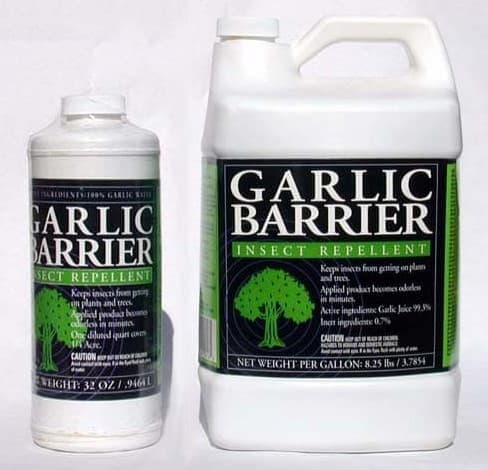Organic Insect Repellents

How to Control Insects Organically
Your organic gardening program needs to address insect control methods. Those nasty, harsh chemicals that effectively kill every insect around, are not part of an organic gardener’s arsenal. Chemical insecticides can have long-term harmful effects on you, and the environment. SO, let’s treat insect infestations with organic insect repellents
Fortunately, there is a wide range of organic insect control methods. Experiment with a variety of insect control methods, to see which works best for you and your specific plants. You may find a combination of insect controls works best.
Organic Insect Control Methods
Insect Repellents
As the term implies, insect repellents “repel” rather than kill insects. The repellent may contain a variety of agents. The most common repellents are garlic-based. Many insects do not like the oil of garlic and will fly off in search of other foods.
Frequent application of organic repellents is often needed, especially after heavy rains.
Companion Plants
There are two types of companion plants: those that complement the nutrient needs of other plants, and those that insects do not like. Plants that insects do not like, make great companions to other plants in your organic garden. Planting onions and garlic amid your organic vegetables will repel a variety of insects. It might even keep the bunnies away. In addition to providing insect protection, you can harvest onions and garlic, too. Marigolds are another great companion plant.
A companion plant can also be one that insects like. In South America, coffee growers plant banana trees around the coffee crops. Insects like the sweet, banana plants and fruit, much more than coffee plants.
Note: Plants that repel insects often make a good ingredient for insect repellent sprays.
Beneficial Insects
One way to get harmful insects out of your organic garden is to introduce and promote beneficial insects into your garden. The most well-known beneficial insects are ladybugs and praying mantis. If you’ve got aphids, the ladybugs will thrive. If you have a variety of insects, the praying mantis will find ample hunting.
You can actually purchase these beneficial insects, and introduce them to your yard or garden.
Did you Know? They say Ladybugs bring good luck. Lucky for you. Not so lucky for an aphid.
Insect Barriers
A fine mesh insect netting will keep even small insects out of your garden. The fine mesh keeps insects out, yet lets sunlight, air, and moisture in. The amount of sunlight entering and reaching your plants is dependent upon how fine the mesh is.
There is a wide range of insect and pest netting. A 1/4″ to 3’8″ mesh may be effective against Cicada, locust, and grasshopper invasions. They are very effective against these pests, some larger-sized beetles, and a few other very large insects.
For the vast majority of insects, finer meshed insect netting is required.
Pest and insect netting can be very effective against flying and crawling (above ground) insects. But, they will not deter insects that live in the soil.
Also, floating row covers can be used to keep insects away. They also shade the plant, significantly reducing sunlight. Therefore, the use of row covers should just be temporary.
More on Organic Gardening
More on Certified Organic Garden Seeds– the all important starting point
Garden soil and soil amendments
Fertilizers – manures, compost and more.
Insect repellents/insect control
Beneficial Insects – use the good bugs to get the bad bugs
Please support our site. Shop for:
- rmmatthews100@hotmail.com
- 585-721-6528
- Rochester, NY
©1999-2024 GardenersNet.Com, All Rights Reserved

